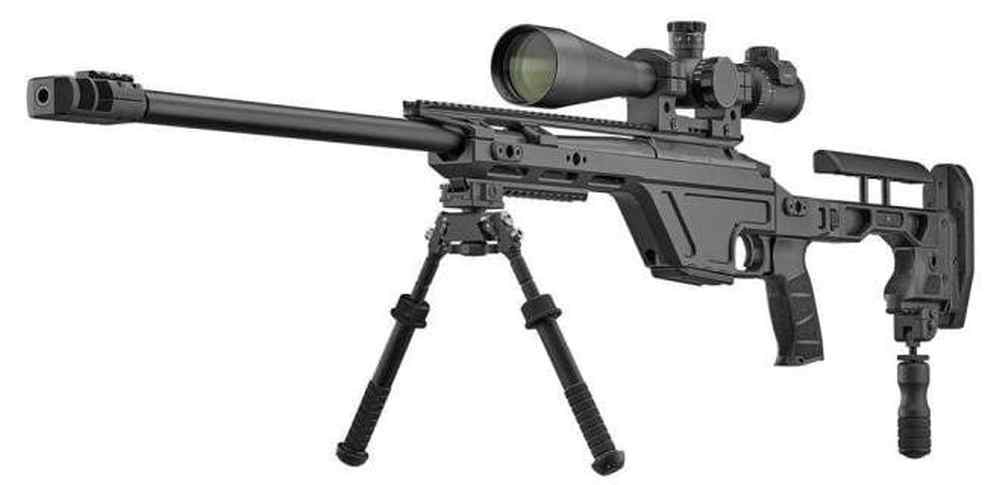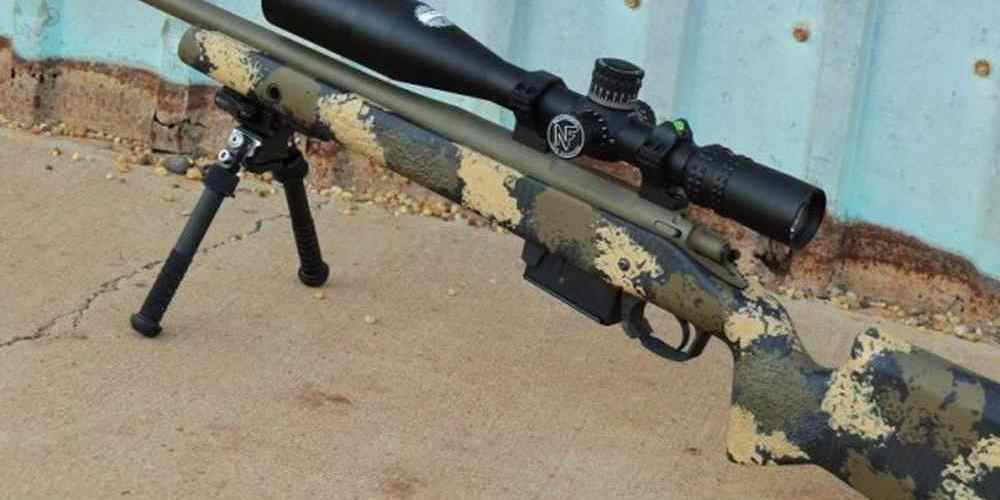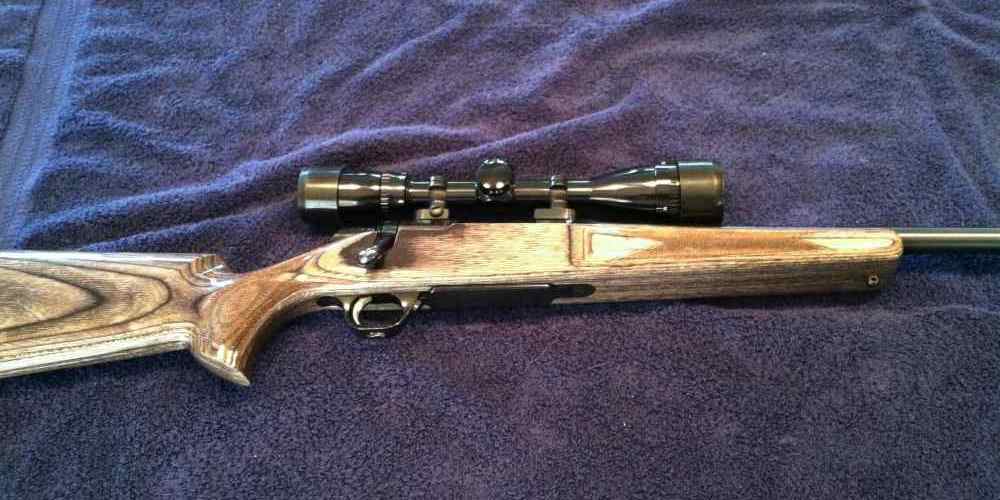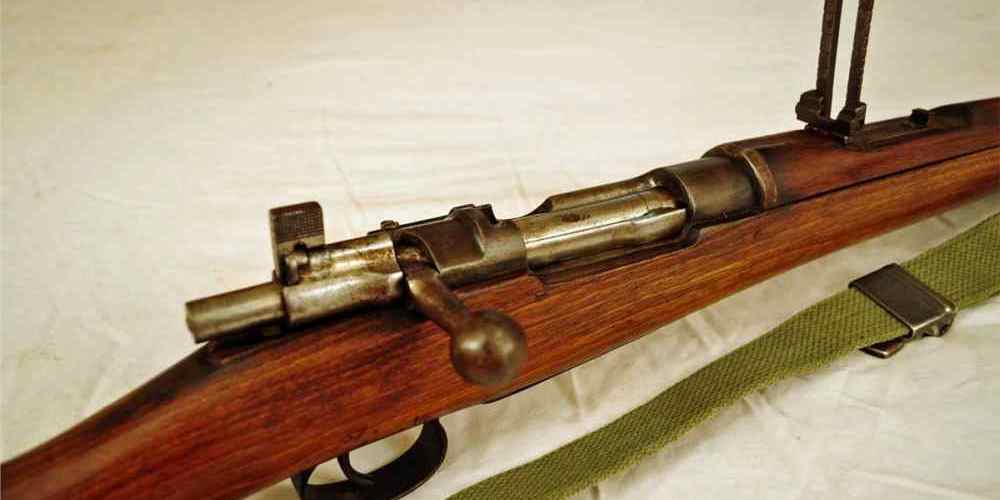“Choosing the right rifle bolt for extreme conditions – precision and reliability in harsh climates.”
Material Composition of the Bolt
When it comes to selecting a rifle bolt for harsh climates, there are several factors to consider to ensure optimal performance and durability. One of the key aspects to pay attention to is the material composition of the bolt. The material used in the construction of the bolt can have a significant impact on its performance in extreme weather conditions.
One of the most common materials used for rifle bolts is stainless steel. Stainless steel is known for its corrosion resistance, making it an excellent choice for rifles that will be used in harsh climates. Stainless steel bolts are less likely to rust or corrode when exposed to moisture, which is a common issue in humid or wet environments. This makes them a reliable option for shooters who plan to use their rifles in rainy or snowy conditions.
Another popular material for rifle bolts is titanium. Titanium is known for its strength and lightweight properties, making it a desirable choice for shooters who prioritize durability and portability. Titanium bolts are less likely to warp or deform under extreme temperatures, making them a suitable option for shooters who will be using their rifles in hot or cold climates. Additionally, titanium bolts are resistant to corrosion, making them a reliable choice for shooters who will be exposed to moisture or saltwater.
In addition to stainless steel and titanium, some rifle bolts are made from carbon steel. Carbon steel is known for its strength and durability, making it a popular choice for shooters who prioritize reliability. Carbon steel bolts are less likely to break or fail under heavy use, making them a suitable option for shooters who will be using their rifles in rugged terrain or harsh conditions. However, carbon steel bolts are more prone to rust and corrosion compared to stainless steel or titanium bolts, so shooters should take extra care to properly maintain and protect their carbon steel bolts.
When selecting a rifle bolt for harsh climates, it is important to consider the material composition of the bolt to ensure optimal performance and durability. Stainless steel, titanium, and carbon steel are all popular choices for rifle bolts, each offering unique benefits and considerations. Shooters should carefully evaluate their needs and preferences to determine which material will best suit their shooting style and environment.
In conclusion, the material composition of the rifle bolt plays a crucial role in its performance in harsh climates. Stainless steel, titanium, and carbon steel are all viable options, each offering unique benefits and considerations. Shooters should carefully consider their needs and preferences to select the best material for their rifle bolt to ensure reliable performance in extreme weather conditions. By choosing the right material composition, shooters can enjoy peace of mind knowing that their rifle bolt is up to the task of handling whatever challenges come their way.
Corrosion Resistance
When it comes to selecting a rifle bolt for harsh climates, one of the most important factors to consider is corrosion resistance. Harsh climates can wreak havoc on metal components, causing rust and corrosion that can affect the performance and longevity of your rifle. To ensure that your rifle bolt can withstand the elements, it’s crucial to choose a material that is resistant to corrosion.
One of the most popular materials for rifle bolts is stainless steel. Stainless steel is known for its high resistance to corrosion, making it an excellent choice for use in harsh climates. Stainless steel bolts are durable and long-lasting, making them ideal for use in rugged outdoor environments. Additionally, stainless steel bolts are easy to clean and maintain, making them a practical choice for hunters and shooters who spend a lot of time in the field.

Another material to consider for a corrosion-resistant rifle bolt is titanium. Titanium is a lightweight and incredibly strong metal that is also highly resistant to corrosion. Titanium bolts are often used in high-performance rifles due to their durability and reliability. While titanium bolts may be more expensive than stainless steel bolts, they offer superior corrosion resistance and can withstand even the harshest of climates.
In addition to the material of the rifle bolt, it’s also important to consider the finish. A high-quality finish can provide an extra layer of protection against corrosion, helping to prolong the life of your rifle bolt. Some popular finishes for rifle bolts include nitride, cerakote, and chrome. These finishes not only enhance the appearance of the bolt but also provide added protection against rust and corrosion.
When selecting a rifle bolt for harsh climates, it’s essential to choose a material and finish that will provide the best possible protection against corrosion. Stainless steel and titanium are both excellent choices for corrosion-resistant rifle bolts, offering durability and reliability in even the toughest conditions. Additionally, investing in a high-quality finish can help to further protect your rifle bolt from the elements, ensuring that it will continue to perform at its best for years to come.
In conclusion, selecting a rifle bolt for harsh climates requires careful consideration of corrosion resistance. Choosing a material like stainless steel or titanium, along with a high-quality finish, can help to protect your rifle bolt from rust and corrosion, ensuring that it remains in top condition for years to come. By investing in a corrosion-resistant rifle bolt, you can enjoy peace of mind knowing that your rifle will perform reliably in any environment.
Ease of Maintenance
When selecting a rifle bolt for use in harsh climates, one of the most important factors to consider is ease of maintenance. A rifle bolt that is difficult to clean and maintain can quickly become a liability in extreme weather conditions, leading to malfunctions and decreased accuracy. In this article, we will discuss some key considerations to keep in mind when choosing a rifle bolt for use in harsh climates.
One of the first things to consider when evaluating the ease of maintenance of a rifle bolt is the design of the bolt itself. Some rifle bolts have intricate designs with many small moving parts that can be difficult to disassemble and clean. These types of bolts may require specialized tools and a high level of expertise to properly maintain. In contrast, simpler bolt designs with fewer moving parts are generally easier to clean and maintain, making them a better choice for use in harsh climates.
Another important factor to consider is the materials used in the construction of the rifle bolt. Some materials are more resistant to corrosion and rust than others, making them better suited for use in harsh climates. Stainless steel, for example, is highly resistant to rust and corrosion, making it an excellent choice for use in wet or humid environments. Other materials, such as titanium or nitride coatings, can also provide added protection against the elements.
In addition to the design and materials used in the construction of the rifle bolt, it is also important to consider the overall maintenance requirements of the bolt. Some rifle bolts may require regular cleaning and lubrication to ensure smooth operation, while others may be more forgiving in terms of maintenance. It is important to carefully read the manufacturer’s recommendations for cleaning and maintenance to ensure that the rifle bolt will perform reliably in harsh climates.
When evaluating the ease of maintenance of a rifle bolt, it is also important to consider the availability of replacement parts. In harsh climates, rifle bolts may be subjected to increased wear and tear, leading to the need for replacement parts. It is important to choose a rifle bolt that has readily available replacement parts to ensure that the bolt can be quickly repaired in the event of a malfunction.
In conclusion, when selecting a rifle bolt for use in harsh climates, ease of maintenance is a critical factor to consider. Choosing a rifle bolt with a simple design, durable materials, and minimal maintenance requirements can help ensure that the bolt will perform reliably in extreme weather conditions. By carefully evaluating these factors and choosing a rifle bolt that is easy to clean and maintain, you can help ensure that your rifle will perform at its best when you need it most.
Reliability in Extreme Temperatures
When it comes to selecting a rifle bolt for harsh climates, reliability is key. Extreme temperatures can have a significant impact on the performance of your firearm, so it’s important to choose a bolt that can withstand the elements. There are several factors to consider when selecting a rifle bolt for harsh climates, including material, design, and maintenance.
One of the most important considerations when choosing a rifle bolt for harsh climates is the material it is made from. Different materials have different properties when it comes to temperature resistance, so it’s important to choose a material that can withstand extreme temperatures. Stainless steel is a popular choice for rifle bolts in harsh climates, as it is highly resistant to corrosion and can withstand a wide range of temperatures. Other materials, such as titanium and nitrided steel, are also good options for harsh climates.
In addition to material, the design of the rifle bolt is also important when it comes to reliability in extreme temperatures. A well-designed bolt will be able to function smoothly and reliably in a wide range of conditions, from freezing cold to scorching heat. Look for a bolt that has been specifically designed for use in harsh climates, with features such as a durable coating to protect against corrosion and a smooth action that won’t be affected by temperature extremes.
Maintenance is another important factor to consider when selecting a rifle bolt for harsh climates. Regular maintenance is essential to keep your bolt functioning properly in extreme temperatures, so choose a bolt that is easy to clean and maintain. Look for a bolt that can be disassembled easily for cleaning and lubrication, and make sure to follow the manufacturer’s recommendations for maintenance to ensure optimal performance.
When selecting a rifle bolt for harsh climates, it’s important to consider all of these factors to ensure that you choose a bolt that is reliable and durable in extreme temperatures. Stainless steel, titanium, and nitrided steel are all good material options for harsh climates, and a well-designed bolt with a durable coating and smooth action will help ensure reliable performance. Regular maintenance is also essential to keep your bolt functioning properly in extreme temperatures, so choose a bolt that is easy to clean and maintain.
In conclusion, selecting a rifle bolt for harsh climates requires careful consideration of material, design, and maintenance. By choosing a bolt made from a durable material such as stainless steel, titanium, or nitrided steel, with a well-designed action and a durable coating, you can ensure reliable performance in extreme temperatures. Regular maintenance is also essential to keep your bolt functioning properly, so choose a bolt that is easy to clean and maintain. With the right bolt, you can enjoy reliable performance in even the harshest of climates.
Compatibility with Different Calibers
When selecting a rifle bolt for harsh climates, one of the key factors to consider is its compatibility with different calibers. The caliber of a rifle refers to the diameter of the barrel and the size of the bullet it fires. Different calibers are suited for different types of shooting, whether it be hunting, target shooting, or long-range shooting. It is important to choose a rifle bolt that is compatible with the caliber you plan to use in order to ensure optimal performance and accuracy.
One of the first things to consider when selecting a rifle bolt for harsh climates is the caliber of the rifle you will be using. Some rifle bolts are designed to work with specific calibers, while others are more versatile and can accommodate a range of calibers. It is important to choose a rifle bolt that is compatible with the caliber you plan to use in order to ensure proper functioning and accuracy.
Another factor to consider when selecting a rifle bolt for harsh climates is the type of ammunition you will be using. Different types of ammunition can have different pressure levels, which can affect the performance of the rifle bolt. It is important to choose a rifle bolt that is designed to handle the specific type of ammunition you plan to use in order to ensure reliable and consistent performance.
In addition to considering the caliber and type of ammunition, it is also important to consider the material and construction of the rifle bolt. Some rifle bolts are made from high-quality materials such as stainless steel or titanium, which are more durable and resistant to corrosion. These materials are ideal for use in harsh climates where exposure to moisture, salt, and other elements can cause rust and corrosion.
It is also important to consider the design of the rifle bolt when selecting one for harsh climates. Some rifle bolts have features such as fluting or spiral grooves that help to reduce weight and improve heat dissipation. These features can be beneficial in harsh climates where temperatures can fluctuate and affect the performance of the rifle bolt.
When selecting a rifle bolt for harsh climates, it is important to choose one that is compatible with the caliber and type of ammunition you plan to use, as well as one that is made from high-quality materials and has a durable design. By taking these factors into consideration, you can ensure that your rifle bolt will perform reliably and accurately in even the harshest of conditions.






